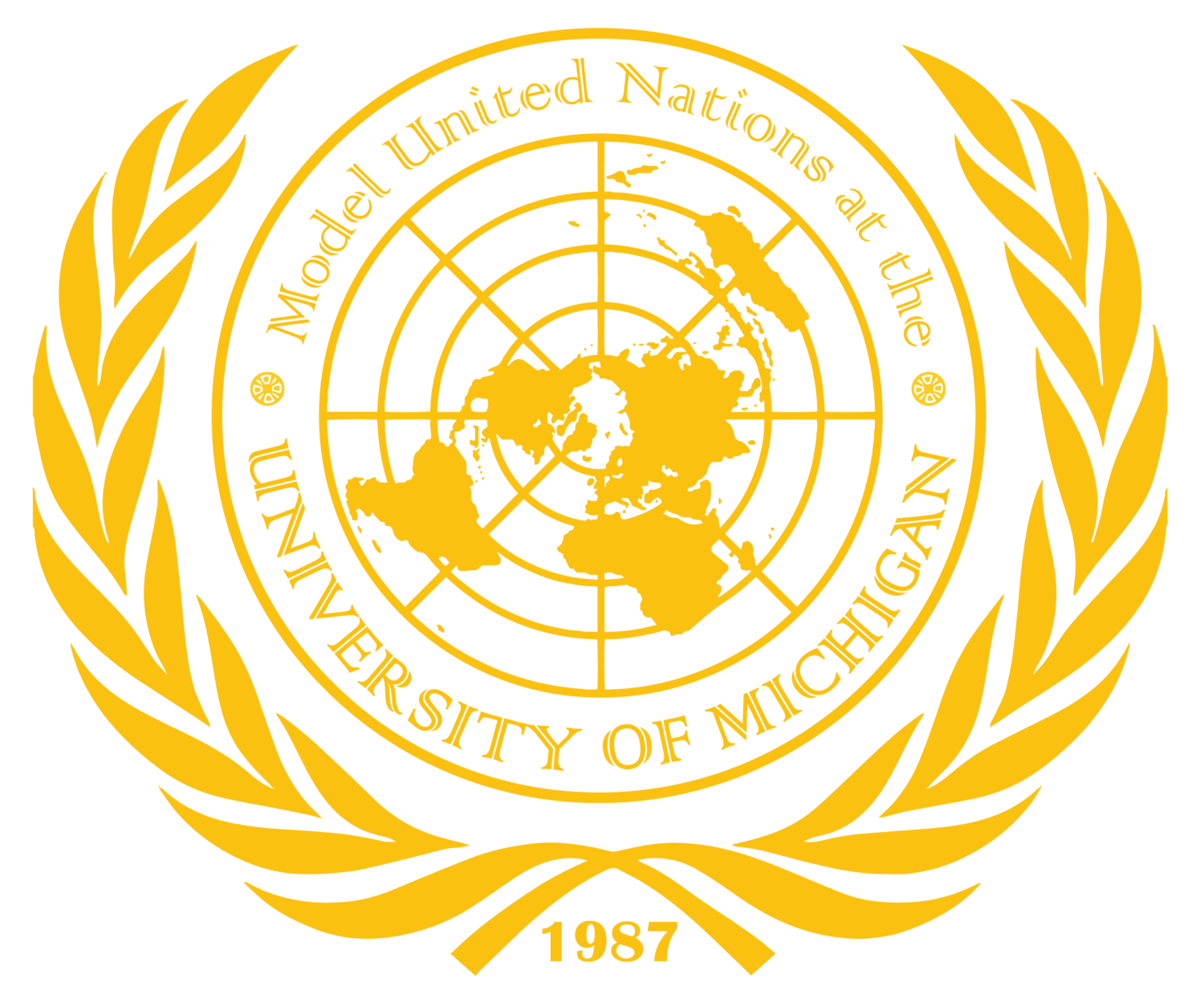By: Sophia Rich
Every year, high-school aged delegates from all over the country come to Ann Arbor to attend the annual Model United Nations conference at the University of Michigan. MUNUM takes place at the beginning of the high school conference season and tends to set the tone for the rest of the year’s conferences. This weekend is notably memorable for first year delegates, primarily freshmen. In addition to all the skills and experiences these first-year delegates pick up in committee, participation in naturally occurring, unscripted events allow for these delegates to get a good understanding of the MUNUM culture! Due to Covid-19, the 2021 MUNUM conference has been moved completely online. Although everyone leading the conference this year has done a great job, this year’s conference is inevitably different than years in the past. For this column, I wanted to take a deeper dive into what it’s like to go through your first real Model UN conference virtually!
For all delegates, your first Model UN conference can be extremely overwhelming. Now imagine going through this brand new experience in a virtual setting, as much as we try to lessen the tension, these digital interactions often feel forced and robotic. I had the opportunity to talk to a few first-time MUNUM delegates and get a glimpse into their experience in committee this year. I started off by asking these delegates about their level of comfort speaking and participating in their committee. I got a wide range of answers but most delegates found that their first time speaking was the hardest bit it kind of took off from there. Alexandre Morrison, a first year delegate in UNGASS, shared with me that, “It’s hard to start speaking in a committee, but once I first spoke, it became easier. One time kind of builds momentum and helps me gain confidence while doing it.” A lot of delegates I chatted with also expressed some level of difficulty trying to remember parliamentary procedure, they said that sometimes they hesitate to speak up in committee because they don’t always know exactly how to phrase it. When reflecting on these answers from a personal perspective, I found that this specific piece of MUN doesn’t really differ from in-person conferences to virtual conferences. I encouraged these delegates to just go for it! I reassured them that their chairs are always supporting them and would be willing to help remind them of proper parliamentary procedure.
The area in which these freshman delegates expressed their feelings of missing out was the recreational side of MUN. When asked if they made friends or reached out to other delegates, a lot of them hesitated, they told me that the recreational moments felt awkward and they had trouble connecting with other delegates. Parini Rao, a freshman delegate from Greenhills School, told me that, “It’s weird having to start Model UN online. I’ve never done it before, so it’s also been hard to really understand what it is like solely through zoom. Since we are online I feel like we’re missing out on other team bonding moments and being involved.” I think Parini summed up the freshman experience pretty well. Although a lot of these first-time delegates felt a little unsure at first they are all extremely thankful for the MUNUM staff for putting this conference together! Yes, MUNUM feels different this year but everyone I talked to still had a great weekend and can’t wait to come back next year!
